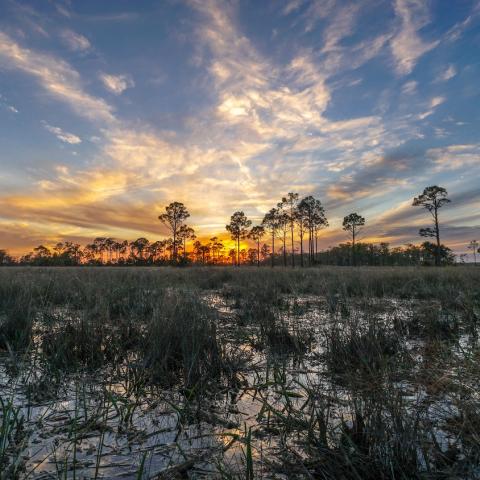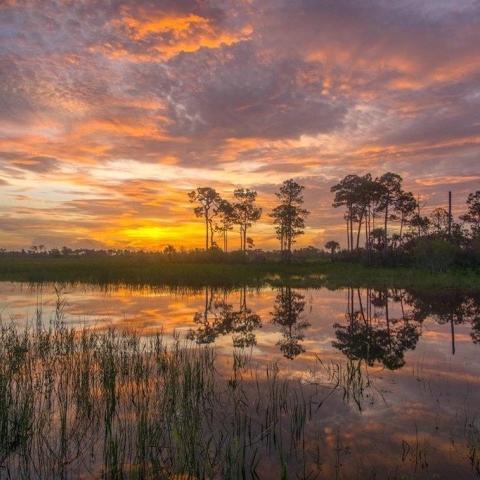
Florida's agriculture commissioner wants Interior Secretary Deb Haaland to halt Burnett Oil Co.'s search for oil in Big Cypress National Preserve/NPS file
Interior Secretary Deb Haaland has been asked by Florida's agriculture commissioner to halt Burnett Oil Co.'s oil exploration and possible production in Big Cypress National Preserve.
In a letter to Haaland, Commissioner Nicole Fried voiced her concern "regarding the company's inadequate mitigation of prior wetlands damage in the region."
"I am joined in this opposition and concern by bipartisan members of Florida's congressional delegation, Indigenous communities including the Seminole Tribe of Florida and the Miccosukee Tribe of Indians of Florida, environmental and conservation advocates, and local communities," continued Fried.
The National Park Service owns the surface of the more than 720,000-acre preserve, while the mineral rights are privately owned – energy exploration and possible development were allowed in the enabling legislation that in 1974 made Big Cypress the country’s first national preserve, and indeed there is ongoing oil production in some areas of the preserve.
Burnett conducted exploration activities in the national preserve in 2017 and 2018, and a year ago filed applications for drilling permits from the state of Florida and the National Park Service.
In supporting documents Burnett filed in seeking the state 404 environmental permit, the oil company said it was proposing to use directional drilling (aka horizontal drilling) to tap oil reserves discovered during the past semismic testing. The company's proposed road alignment to the pad seeks to avoid impacting habitat used by state- and federally-listed floral and faunal species, the document said. Overall, the project proposal "is designed to avoid significantly degrading" Big Cypress, it added.
"A public benefit is provided relative to long-term wetland functions within the drainage basin because the applicant is mitigating for wetland impacts as if the impacts were permanent, in addition to the applicant removing the wellpad and road fill at the termination of oil production activities and restoring the native habitats within the project footprint," the company said at the time. "This amounts to the applicant mitigating twice for the same wetland impacts, albeit over an extended timeframe."
In her December 29 letter (attached below) to the Interior secretary, Fried said the national preserve "has not yet recovered" from damage that resulted from Burnett's exploration activities.
"The Burnett proposal -- which requires NPS approval -- is so incomplete that last week, the Florida Department of Environmental Protection strongly recommended that Burnett withdraw its application or risk denial," the agriculture commissioner wrote. "The Florida Fish and Wildlife Conservation Commission also raised serious concerns about missing information on potential impacts to endangered species, should this drilling proceed."
In concluding her letter Fried stressed that "[T]he fate of this vast wilderness, part of the most unique and delicate ecosystem on Earth, hangs in the balance with these decisions before you."
Past Traveler stories pertaining to this project include:
Mixing Oil And Water At Big Cypress National Preserve
Army Corps Finds Big Cypress National Preserve Oil Exploration Caused Adverse Impacts
Army Corps Reverses Position On Oil Company's Impacts On Big Cypress National Preserve
Groups Want Florida To Purchase Big Cypress National Preserve Mineral Rights
Burnett Oil Inching Towards Drilling At Big Cypress National Preserve
Oil Drilling At Big Cypress National Preserve Might Not Require EIS
Geologists Share Their Concerns With Drilling For Oil In Big Cypress
Review Of Oil Drilling Plans At Big Cypress Could Lead To EIS
Traveler's View: Biden Administration Should Block Big Cypress Oil Drilling



 Support Essential Coverage of Essential Places
Support Essential Coverage of Essential Places







Add comment